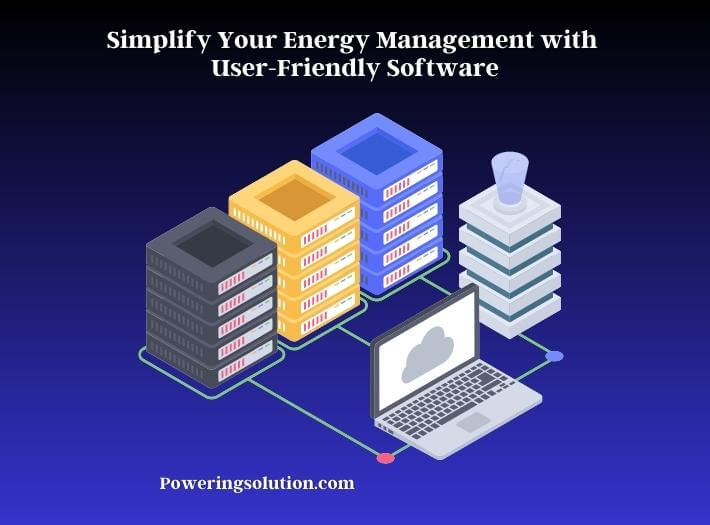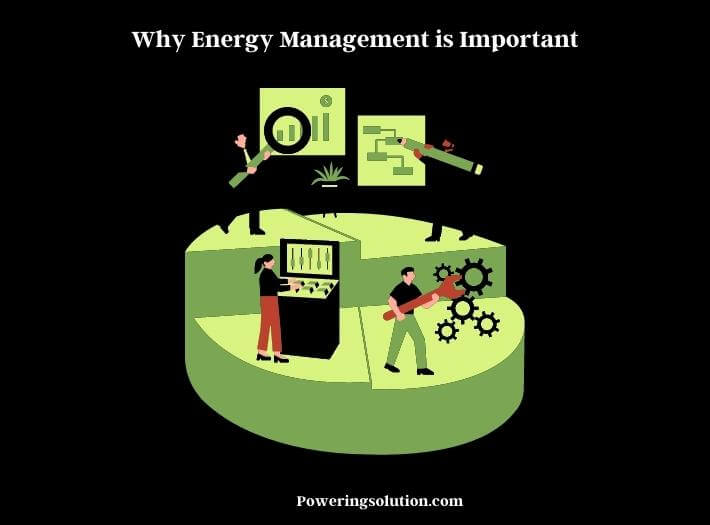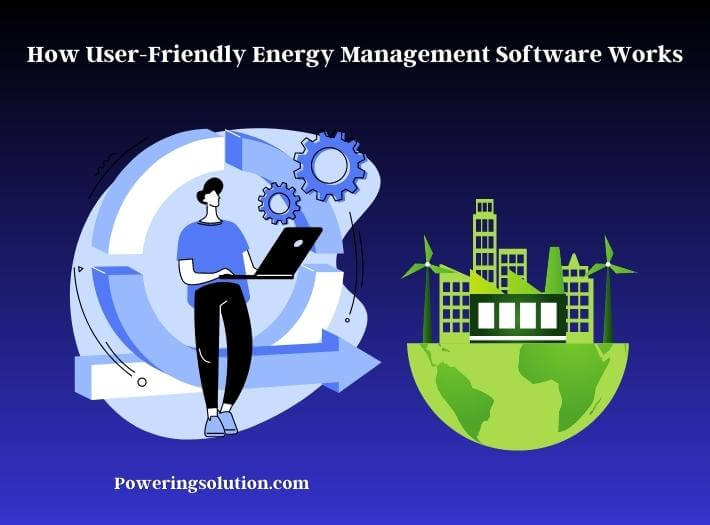As businesses continue to face the challenge of operating efficiently while also reducing their environmental impact, energy management has become an increasingly important consideration. Managing energy use effectively can not only help businesses reduce costs but also improve their sustainability and compliance with regulations.

To achieve these goals, user-friendly software has emerged as a solution that simplifies energy management, providing businesses with real-time data on their energy consumption and enabling them to optimize their energy use easily.
Definition of Energy Management Software
Energy management software is a type of software designed to help businesses manage their energy consumption more effectively. This software is used to collect data on energy use from various sources, including smart meters, sensors, and other devices. The data is then processed and analyzed to provide real-time insights into energy consumption, identifying areas where energy is being wasted or used inefficiently.
Energy management software typically includes features such as energy monitoring, analysis, and reporting, as well as the ability to set targets for energy use and track progress toward those targets. The software can also provide alerts when energy usage exceeds certain thresholds, allowing businesses to take immediate action to address any issues.
Why Energy Management is Important?
Before delving into the benefits of user-friendly energy management software, it is essential to understand why energy management is important.

Reduce Energy Costs
Energy costs can be a significant expense for businesses, especially those that rely heavily on energy-intensive processes. By managing energy use, businesses can reduce their energy costs, resulting in significant cost savings.
Improve Sustainability
Managing energy use effectively can help businesses reduce their carbon footprint and improve their sustainability. By minimizing energy consumption, businesses can reduce their impact on the environment, which can enhance their reputation among customers and stakeholders.
Meet Regulatory Requirements
In some industries, businesses are required to comply with specific energy regulations. By managing their energy use effectively, businesses can comply with regulatory requirements, avoid penalties, and maintain their license to operate.
Benefits of User-Friendly Energy Management Software
Now that we have established why energy management is important, let’s explore the benefits of user-friendly energy management software.
Simplifies Energy Management
User-friendly software simplifies energy management by providing users with real-time data on their energy consumption. This data can be used to identify areas where energy use can be reduced, enabling businesses to implement energy-saving measures easily.
Increases Energy Efficiency
By providing real-time data on energy consumption, user-friendly software enables businesses to optimize their energy use, resulting in increased energy efficiency. This optimization can lead to cost savings and improved sustainability.
Easy to Use
User-friendly software is easy to use and can be accessed from anywhere with an internet connection. This accessibility means that users can monitor their energy consumption from any location, which is particularly beneficial for businesses with multiple locations.
Customizable
User-friendly software is customizable, allowing users to set specific energy consumption targets and receive alerts when these targets are not met. This customization enables businesses to tailor their energy management strategies to their specific needs, resulting in more effective energy management.
Integration with Other Systems
User-friendly software can be integrated with other systems, such as building management systems, to provide a comprehensive view of energy consumption. This integration enables businesses to identify energy-saving opportunities easily and implement energy-saving measures more effectively.
How User-Friendly Energy Management Software Works?
User-friendly energy management software is designed to simplify energy management and make it accessible to businesses of all sizes. The software works by collecting data from various sources, including smart meters, sensors, and other devices that measure energy consumption.

Once the data is collected, it is processed and analyzed to provide real-time insights into energy use. This includes identifying areas where energy is being wasted or used inefficiently, such as when equipment is left running when it is not needed. This information is presented in a user-friendly dashboard that allows businesses to quickly identify areas where they can make improvements and take action to optimize their energy use.
One of the key features of user-friendly energy management software is its ability to set targets and track progress toward those targets. This allows businesses to set goals for reducing energy consumption and track their progress over time. The software can also provide alerts when energy usage exceeds certain thresholds, allowing businesses to take immediate action to address any issues.
Integration of Energy Management Software With Other Business Systems
One of the key benefits of energy management software is its ability to integrate with other business systems, providing a comprehensive view of energy use and enabling businesses to optimize their energy consumption more effectively.
Integration with building management systems (It’s important to know that Tesla uses the Battery Management System (BMS) from Panasonic), for example, allows energy management software to access data on heating, ventilation, and air conditioning (HVAC) systems, lighting, and other building systems. This data can be used to identify areas where energy is being wasted or used inefficiently and make adjustments to optimize energy consumption.
Integration with equipment and asset management systems also allows energy management software to collect data on the energy consumption of individual pieces of equipment. This data can be used to identify equipment that is using too much energy or is not operating efficiently, allowing businesses to take corrective action to optimize energy consumption.
Energy management software can also be integrated with financial systems to provide data on energy costs and savings, allowing businesses to track the financial impact of energy management efforts and make more informed decisions about where to invest resources.
Future of Energy Management Software
The future of energy management software looks promising, as businesses continue to prioritize sustainability and energy efficiency. With advancements in technology and increased adoption of renewable energy sources, the demand for energy management software is expected to grow.
One trend that is likely to drive the future of energy management software is the increasing use of artificial intelligence (AI) and machine learning. These technologies can be used to analyze large amounts of data on energy consumption, identify patterns and trends, and make recommendations for optimizing energy use. AI and machine learning can also be used to predict energy consumption and optimize energy use based on weather patterns, occupancy levels, and other factors.
Another trend is the increasing use of Internet of Things (IoT) devices and sensors, which can be used to collect real-time data on energy consumption from a variety of sources. This data can be analyzed using energy management software to identify areas where energy is being wasted or used inefficiently and make adjustments to optimize energy consumption.
As businesses continue to face pressure to reduce their environmental impact, energy management software is likely to become an increasingly important tool. The ability to monitor and optimize energy consumption in real time can help businesses reduce costs, improve their sustainability, and comply with regulations. With continued innovation and integration with other business systems, the future of energy management software looks bright.
In a Nutshell
Energy management software is a powerful tool for businesses looking to optimize their energy consumption, reduce costs, and improve their sustainability. By collecting and analyzing data on energy use from various sources, energy management software provides real-time insights into energy consumption and identifies areas where energy is being wasted or used inefficiently.
The user-friendly design of energy management software makes it accessible to businesses of all sizes, simplifying the process of managing energy use and contributing to a more sustainable future. Integration with other business systems, such as building management systems, equipment and asset management systems, and financial systems, provides a more holistic view of energy consumption and enables businesses to optimize their energy use more effectively.
Looking to the future, the increasing use of AI, machine learning, and IoT devices is likely to drive the development of energy management software, making it an even more powerful tool for businesses looking to reduce their environmental impact and improve their bottom line.
If you want to get the most out of your appliances with energy star ratings, click here for these appliances.
